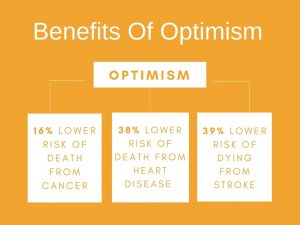Does anyone remember those feel-good segments they used to do on morning news shows, highlighting smiling seniors who were celebrating their 100th birthdays? Those special people were among the few to join the century club, and everyone always eagerly asked them how they did it; the answers could be anything from the simple (eating healthy and having good friends!) to the slightly, well, unusual (a shot of gin every day), but they all seemed to have their own ideas of how they managed to make it to a healthy 100.

And, you know, we say “the few” to reach 100, but more and more people are reaching that milestone these days; in fact, according to the CDC, the number of Americans 100 years old or older increased by nearly 41% between 2000 and 2014! So reaching 100 is an attainable goal, within certain constraints – your genes do play a part in your life expectancy, but maybe less than you might think.
According to Dan Beuttner, author of the book The Blue Zones, which looks at five places around the world with the highest populations of people who live to 100, “For the average American, about 20% of life expectancy is genes, and the other 80% is lifestyle.” Beuttner points out that “Healthy habits can help eliminate the diseases that tend to shorten your life – such as cancer, diabetes and heart disease.” So, while there is no magic potion – or even one lifestyle change that will work for everyone and keep every disease at bay – there are some things you can do to keep yourself as healthy as possible, and moving towards a healthy and happy 100th birthday!
1. Get Off Your You-Know-What
You know what’s one thing we haven’t put on this list? Smoking! Too obvious, right? Well, health experts are now saying that “sitting is the new smoking,” meaning that doing too much of it can be as bad as lighting up a cigarette. In fact, one study found that those who spent more than six hours a day sitting had a 19% higher mortality rate than those who spent less than three hours of their leisure time on the couch.
Sounds like it’s time to ditch that couch potato lifestyle! Simply getting up and walking around once every 30 minutes is a good start, but you’ll definitely need to get more active to see the most benefits. According to research published in the Journal of the American Geriatrics Society, women aged 65-99 who averaged just 30 minutes of light physical activity (dusting, washing dishes) each day reduced their risk of dying by 12% and those who got an hour of moderate activity (brisk walking, taking the stairs) lowered their mortality risk by 39%.
And if you want to kick things up another notch, consider adding in some more intense activities: for example, adults who reported frequently playing tennis lived 9.7 years longer than people who were sedentary. Not only that, but according to several large studies, while walking is a great way to increase your longevity, runners live an average of 3 years longer than non-runners, and for every hour you run, you add around 7 hours to your life! Wow! Now where did we put those running shoes…
2. Watch Your Waistline
Maybe it’s not a surprise to you, but being overweight or obese has been linked to an increased mortality risk, mostly because not maintaining a healthy weight can lead to some of the major diseases that could cut your life short, like cancer, diabetes, and heart disease. And the advice to combat this issue probably won’t surprise you all that much, either: eat right, and get plenty of exercise. But maybe you haven’t heard these stats: according to one study, individuals who had at least five home-cooked meals per week were 28% less likely to be overweight, and 24% less likely to have excess body fat than individuals who ate less than three home-cooked meals per week. So maybe it’s time to take up cooking!
3. Pay Attention to Your Proteins and Fats
It’s no secret that red meat isn’t great for you: in fact, eating it can increase the likelihood of dying from cancer, heart disease, respiratory disease, stroke, diabetes, infections, kidney disease, and liver disease. Simply reducing the amount of red meat you eat, or even swapping out red meat for chicken is a great start, but your best bet is to add other protein sources into your diet. Try:
- Pulses, like beans, chickpeas, peas, and lentils. Studies suggest just one serving a day can lower your bad cholesterol.
- Fish, which will also give you a boost of anti-inflammatory omega-3 fatty acids.
- Nuts– In a study of nearly 120,000 adults, those who ate nuts every day were 20% less likely to have died during the 30-year follow up than those who reported eating no nuts.
Sure, nuts are high in fat, but it’s actually the healthy, unsaturated kind. And while we’re on the subject, while you’re swapping out unhealthy protein sources, don’t forget to also swap out unhealthy fats: a recent study found that for every 2% increase in trans fat in your diet, your risk of premature death jumps by 16%, and just a 5% increase in saturated fat boosts your risk of early death by 8%.

4. Find Your Purpose
Some people’s whole goal in life is taking early retirement, but you know what? It’s not right for everyone – if you love your work, there can be health benefits to continuing on with something that gives you a purpose in life. But if that’s not how you feel about your job, think about how you can bring purpose to your life after retirement, whether that’s volunteering or getting involved in other ways. Think about this: according to a 2016 review of 10 studies, a sense of purpose in life can be linked to an 83% reduction in death from all causes and a significantly lower risk of cardiovascular events such as stroke or heart attack – so find what you love and get out there!
5. Keep on Top of Your Health
If you want to live to 100, you need to make friends with your doctor! Ok, we don’t mean it’s time to take them out to dinner; you need to stay on top of your health, and that means not skipping your annual physical, and making sure to talk to your doctor about referrals for screenings for the common cancers that shorten many people’s lives. So get that colonoscopy, mammogram, prostate check, or pap smear, and talk to a dermatologist about melanoma risks.
6. Be Wholly Nutritious
One way to live a longer, healthier life is to swap out simple carbs for whole grain or unprocessed options; for example, consider this amazing stat: swapping a little more than two servings of your normal white rice to brown rice will lower your risk of developing type 2 diabetes by 16%, and the added fiber in the brown rice will also help to lower your bad cholesterol levels. Not only that, but in one study, people who ate whole grains had a 20% lower risk of death than those who ate little or no whole grains!
7. Breathe Out the Negative, Breathe in the Positive!
Stress can be toxic, but, hey, it’s a part of almost all of our lives, right? There’s no magic wand you can wave to get rid of it, but it is important to manage it, as well as to bring more positivity into your life. Keep stress under control by meditating, practicing yoga, or even just engaging in simple breathing activities; consider pushing out negativity and adding in positivity by starting a gratitude journal – according to one study, people who are more grateful feel healthier and report fewer aches and pains.
Not only that, but your outlook on life matters, so try to ditch the pessimism: A recent study out of Harvard University found that people who scored highest on measures of optimism had a 16% lower risk of death from cancer, a 38% lower risk of death from heart disease and respiratory disease, and a 39% lower risk of dying from stroke. Well, looks like it all comes back to finding your happiness, and that might include the following tip…
8. Stay Connected
There’s not really too much need to push the benefits of having friends and other close connections in your life, is there – the joy you get from friendships, sexual relationships, and even having a pet kind of speaks for itself, right? But just in case, consider this: having strong social connections (in other words, you actually spend meaningful time connecting with friends and other loved ones) has been shown to reduce your risk of early death by 50%!
As for sex, staying connected to someone in that way can also help you live longer: one study has linked having sex at least once a week to having longer telomeres (the protective caps on your DNA strands), which generally equals longer life. And pets? Even connecting with our furry friends can keep us alive: studies show that both dog and cat owners are less likely to have heart attacks, or die of heart disease or stroke.
One final thing to consider: on the flip side of all of this, some health experts believe that loneliness can be as deadly as smoking 15 cigarettes a day. So reach out and touch someone!

9. Keep Your Focus
Eye problems can be a nuisance, but not taking care of them can actually shorten your life! In a study published in JAMA Ophthalmology, women who had cataract surgery were less likely to die of any cause than women who did not have their vision corrected. Keep your independence, and your health, and take care of those peepers!
10. Stay Balanced
Did you know that elderly women who fall and break a hip are five times more likely to die within a year than women of the same age who don’t break a hip? That’s an extremely worrying statistic, so take it to heart and prevent falls before they start happening! One way to do this? Maintain your balance by practicing tai chi, and keep yourself out of the hospital and enjoying a long life.
Age is just a number, but most of us want to see that number steadily rising, right? And not only that, but even as the years go by, we want to continue to feel vital, healthy, and happy – so try the simple tips above and see how far you can go!
